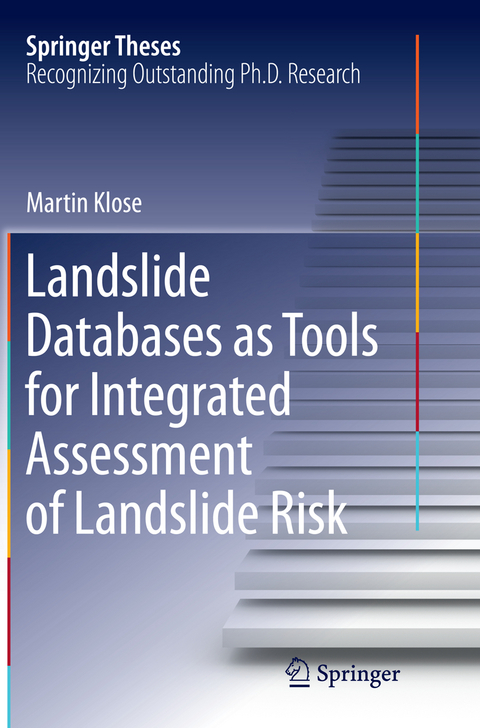
Landslide Databases as Tools for Integrated Assessment of Landslide Risk
Springer International Publishing (Verlag)
978-3-319-38717-8 (ISBN)
Martin Klose received his PhD in Physical Geography from the University of Vechta, Germany. His research interests lie in geohazard databases, landslide risk assessment, and urban planning. Before working on a national landslide database project for Germany, he had been affiliated with the University of Göttingen, Germany. Martin Klose was visiting scientist and student assistant at the U.S. Geological Survey, Potsdam Institute for Climate Impact Research, and Department of Remote Sensing at the University of Würzburg in cooperation with the German Aerospace Center (DLR). He holds a diploma degree in Geography from the University of Würzburg, Germany.
Introduction.- Landslide Databases State of Research and the Case of Germany.- Study Area.- Methodology.- Results.- Synthesis Towards Integrated Assessment of Landslide Risk.
| Erscheinungsdatum | 21.10.2016 |
|---|---|
| Reihe/Serie | Springer Theses |
| Zusatzinfo | XIV, 156 p. 35 illus., 28 illus. in color. |
| Verlagsort | Cham |
| Sprache | englisch |
| Maße | 155 x 235 mm |
| Themenwelt | Naturwissenschaften ► Biologie ► Ökologie / Naturschutz |
| Naturwissenschaften ► Geowissenschaften ► Geografie / Kartografie | |
| Naturwissenschaften ► Geowissenschaften ► Geologie | |
| Wirtschaft ► Volkswirtschaftslehre | |
| Schlagworte | Data Mining and Landslide Databases • Earth and Environmental Science • earth sciences • Environmental economics • Frequency Statistics Regional Landslide • Geographical Information Systems/Cartography • Geographical information systems (GIS) and remote • Geographic Information Systems (GIS) • Geohazards and Landslide Risk • Geohazards and Urban Planning • Hydrological Triggers and Landslide • infrastructures • Integrated Risk Assessment • Landslide Impacts and Damage Costs • natural disasters • Natural Hazards • Susceptibility Models • Vulnerability and Exposure of Critical |
| ISBN-10 | 3-319-38717-0 / 3319387170 |
| ISBN-13 | 978-3-319-38717-8 / 9783319387178 |
| Zustand | Neuware |
| Haben Sie eine Frage zum Produkt? |
aus dem Bereich


